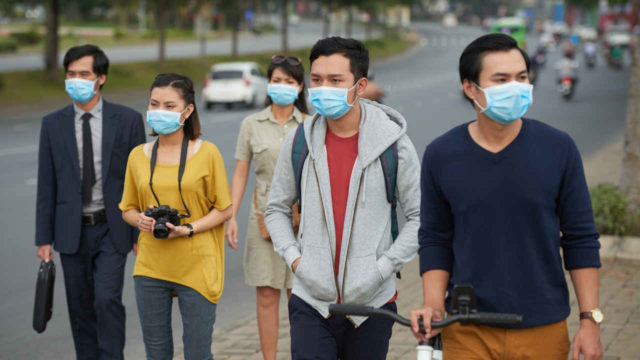 Is coronavirus something you have to worry about?
Is coronavirus something you have to worry about?
Here’s an update on what’s known at this time.
You’ve likely seen recent news stories about coronavirus, but if you’re like many people, you don’t know if this health outbreak occurring primarily in China is something you need to pay attention to. Although information on this virus is rapidly developing, here’s some of the latest information currently known about coronavirus, according to the Centers for Disease Control and Prevention (CDC) and the World Health Organization.
What is coronavirus?
Coronaviruses are a large family of viruses that cause respiratory illnesses, with various strains affecting people and animals. The 2019 Novel Coronavirus (2019-nCoV) is the strain that is currently in the news and it was first identified in Wuhan, China. The virus may cause mild to severe respiratory symptoms.
What are the symptoms of coronavirus?
Symptoms of this illness are similar to other respiratory illnesses and include fever, cough, shortness of breath and difficulty breathing. Some infected people have few or no symptoms and recover in a few days. Others, especially the very young, elderly or those with weakened immune systems, may have more severe symptoms requiring hospitalization. The virus may even cause death.
How do you get coronavirus?
The exact way the virus is spread is unknown at this time, but it is believed that it requires close contact with someone infected with the virus. Initial cases of the illness are believed to have spread by animal-to-person contact but now person-to-person contact is occurring. Symptoms appear in 2 – 14 days after exposure but the virus may be spreading even in people with no obvious symptoms.
“The threat here in the United States for the coronavirus remains small at this time. With that being said, we as physicians, myself included, need to be vigilant about asking patients about their travel history. But patients that have respiratory symptoms should also disclose whether they have traveled to China within the last 30 days to their treating physicians or providers. By taking this approach, we can try to minimize exposure to others and also help obtain an early diagnosis.”
How can you protect yourself from coronavirus?
The same steps you take to avoid getting a cold or the flu will help protect you from coronavirus. Wash hands often. Avoid touching your eyes, nose or mouth with your hands. Disinfect surfaces you touch. Stay away from people with obvious signs of illness. Keep your immune system strong by eating healthy, exercising and getting enough sleep.
Is coronavirus a health threat in the U.S.?
Although coronavirus is a serious public health threat, the CDC currently considers the risk to people in the United States to be low at this time. However, now that the virus has been confirmed in a handful of people in the U.S., this risk may soon increase. If you are not in close contact with someone who has coronavirus, you likely won’t be affected by the virus.
Should you wear a protective face mask?
Images of people in China wearing face masks may have you wondering if you should wear one, too. Masks can be helpful in preventing the spread of the virus if worn properly by limiting the chance of inhaling infectious particles. But since the risk of coronavirus is low in the U.S. at this time, infectious disease experts say there’s little need to wear a mask.
How can coronavirus be treated?
There are no specific treatments for coronavirus, but you can help relieve symptoms by doing what you would do for a cold or flu. This includes taking medication for pain/fever, using a humidifier or taking a hot shower to help ease coughing, drinking plenty of fluids and getting enough rest. If symptoms don’t improve, see a doctor.
Copyright 2020 © Baldwin Publishing, Inc. All rights reserved.
Health eCooking® is a registered trademark of Baldwin Publishing, Inc. Cook eKitchen™ is a designated trademark of Baldwin Publishing, Inc. Any duplication or distribution of the information contained herein without the express approval of Baldwin Publishing, Inc. is strictly prohibited.
Date Last Reviewed: January 27, 2020
Editorial Review: Andrea Cohen, Editorial Director, Baldwin Publishing, Inc. Contact Editor
Medical Review: Perry Pitkow, MD
Learn more about Baldwin Publishing Inc. editorial policy, privacy policy, ADA compliance and sponsorship policy.
No information provided by Baldwin Publishing, Inc. in any article is a substitute for medical advice or treatment for any medical condition. Baldwin Publishing, Inc. strongly suggests that you use this information in consultation with your doctor or other health professional. Use or viewing of any Baldwin Publishing, Inc. article signifies your understanding and agreement to the disclaimer and acceptance of these terms of use.